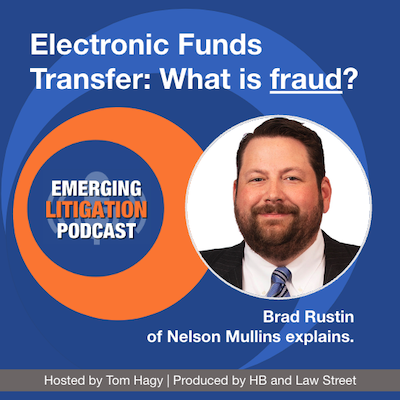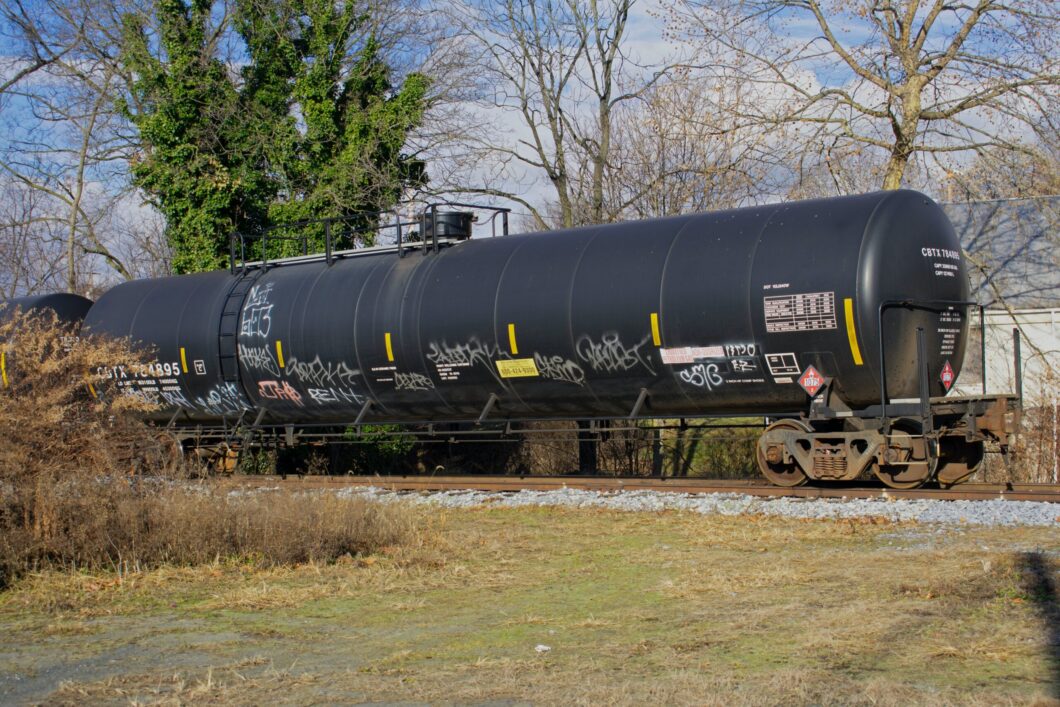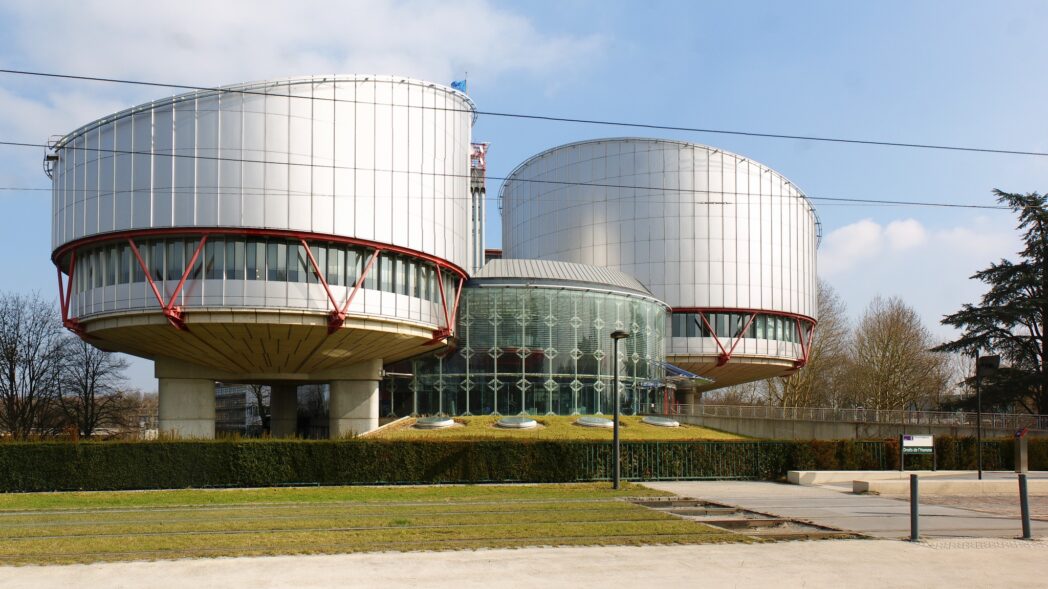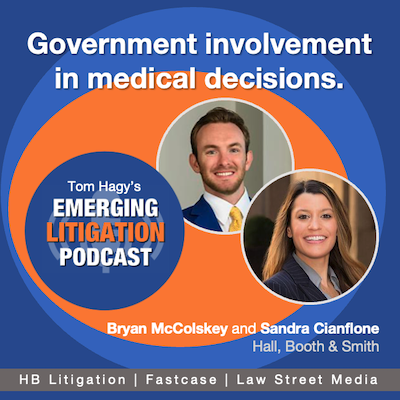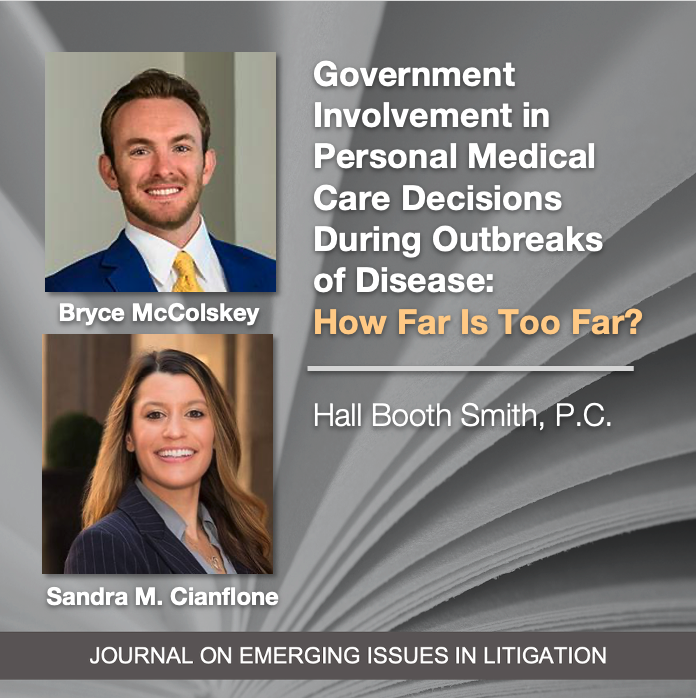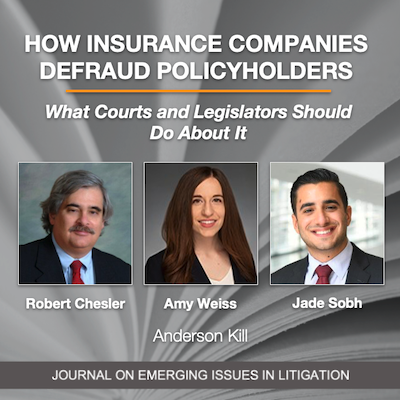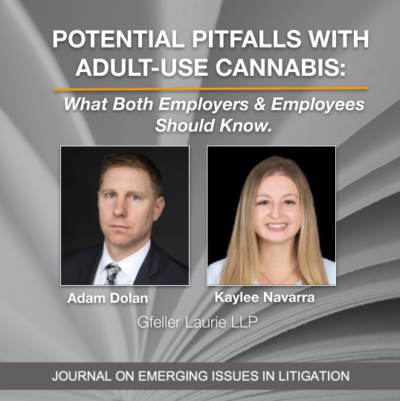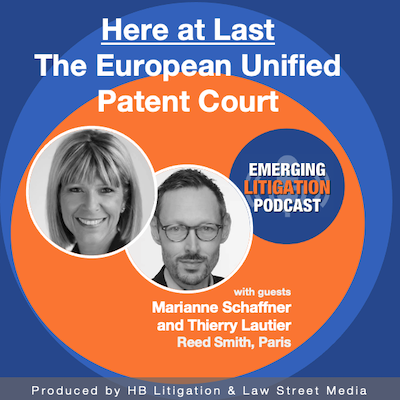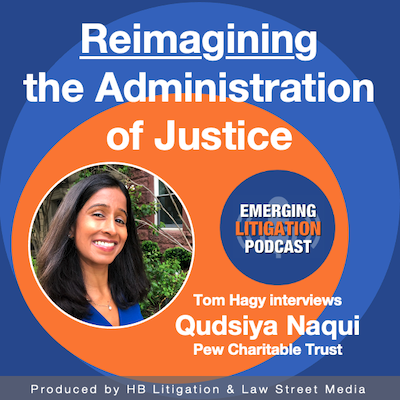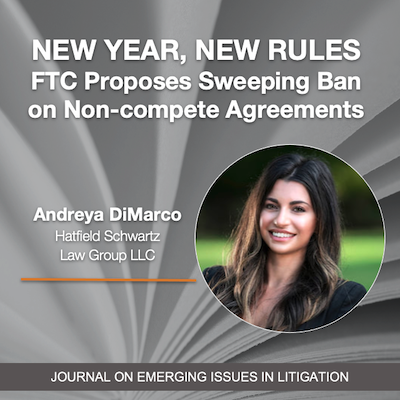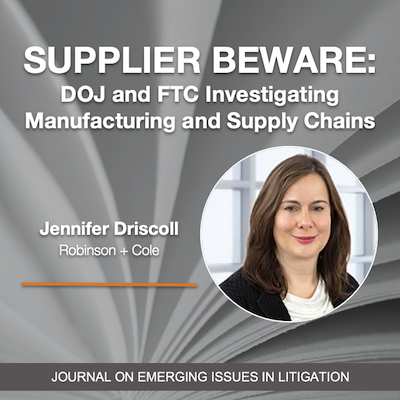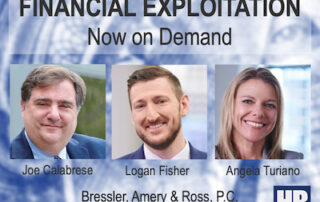Emerging Litigation Podcast
Biometric Privacy Litigation and Coverage Disputes with John Leonard and Cort Malone
Biometric data is big business. In many cases it even helps make our lives better. It also presents significant risks for a variety of parties, in addition to those of us who surrender our data. Companies collecting, storing, utilizing, and monetizing the data face penalties and litigation bolstered by the increasing number of states enacting biometric information privacy acts, or BIPAs, the first of which was in Illinois. In this episode, we discuss the state of biometric privacy litigation, the regulatory landscape, insurance coverage considerations, and recent rulings with guests John Leonard and Cort Malone of Anderson Kill P.C.
Mitigating Greenwashing Litigation Risks with Ramya Ravishankar
In this episode, we discuss mitigating greenwashing litigation risks with guest Ramya Ravishankar, General Counsel at HowGood, an independent research firm that helps the world’s largest food brands meet their sustainability commitments. Listen and learn more!
Automation Comes to Our Litigation Nation with James Lee
In this episode, we discuss litigation automation and another case in which innovators are using artificial intelligence to transform legal operations with guest James M. Lee, co-founder and CEO of LegalMation. Listen and learn more!
A Shameless Plug for Our Content Services
Your content marketing is everything you’ve ever dreamed of. Right?

Critical Legal Content was founded by Tom Hagy, former Editor & Publisher of Mealey’s Litigation Reports and VP at LexisNexis, founder of HB, current litigation podcaster and editor-in-chief. CLC’s mission is to help smaller firms and service providers not only create content — blogs, articles, papers, webinars, podcasts (like the stuff on this site) — but also to get it out there. How? Via social media, this website, your website, and potential via our podcast and journal which we publish in collaboration with vLex Fastcase and Law Street Media. The goal is to attract readers and dizzy them with your brilliance.
*Inspired by actual events.
Create content like a real legal publisher.
Emerging Litigation Journal
Class action alleges Ziploc misled consumers about harmful microplastics in its products
Amid rising concerns about toxic chemicals in consumer products, Apple finds itself under scrutiny. Guest contributor Justin Ward examines the controversy surrounding Apple’s smartwatch bands after researchers detected elevated levels of PFAS, or “forever chemicals.” While Apple insists its products are safe, a class action lawsuit alleges deceptive marketing and health risks, raising broader questions about accountability and chemical transparency in tech and apparel.
What DEI Changes Mean for Employers Featuring Patice Holland
As political and public scrutiny of Diversity, Equity, and Inclusion (DEI) programs grows, employment attorney Patice Holland of WoodsRogers joins the Emerging Litigation Podcast to explain how employers—especially federal contractors—can reassess DEI initiatives while staying compliant with discrimination laws, navigating shifting enforcement priorities, and managing legal, operational, and reputational risk. Tune in now!
Facing PFAS lawsuit, Apple claims watch bands are safe, but what does the evidence say?
Amid rising concerns about toxic chemicals in consumer products, Apple finds itself under scrutiny. Guest contributor Justin Ward examines the controversy surrounding Apple’s smartwatch bands after researchers detected elevated levels of PFAS, or “forever chemicals.” While Apple insists its products are safe, a class action lawsuit alleges deceptive marketing and health risks, raising broader questions about accountability and chemical transparency in tech and apparel.
HB Webinars on CeriFi LegalEdge
Discovery Strategies in Wage and Hour Class and Collective Actions Before and After Certification of Putative Class
Discovery Strategies in Wage and Hour Class and Collective Actions Before and After Certification of Putative Class Strategically Limiting Discovery, Resolving Discovery Disputes Wage and hour class and collective actions are complex and discovery intensive. Discovery requests are often burdensome, seeking information concerning a broad swath of workers. This causes the discovery process to sometimes linger for years and creates a significant expense for employers.In recent years, courts have emphasized that parties must rein in extensive and expensive discovery requests. Employment litigators are increasingly raising proportionality arguments as a basis for objecting to opposing counsel's discovery requests. Drafters are responding by tailoring requests to anticipate such challenges. Drafting discovery requests that are likely to withstand burden and proportionality challenges and objections to broad discovery requests is critical for litigators representing employers in wage and hour class and collective actions. Employment litigators must develop and implement effective discovery strategies both before and, as applicable, after certification of the putative class. These strategies often must anticipate the possibility of a future summary judgment motion, further certification practice, and trial on the merits. Listen as our authoritative panel of employment law attorneys explains effective strategies for pursuing or objecting to discovery requests in wage and hour collective and class actions and resolving discovery disputes that arise during litigation. Questions Addressed: What are the most common discovery challenges counsel face when litigating wage and hour collective and class actions--from initiation through resolution of the case? What strategies have been effective in wage and hour collective and class actions for obtaining essential information with the least expense? What is the scope of discoverable evidence before and after certification of the putative class, and how can you limit or best manage discovery? When drafting discovery requests in wage and hour class and collective actions, what should employment counsel consider to ensure that the requests align with the proportionality standard? Interested in [...]
Rule 23(c)(4) Issue Certification: Reconciling the Conflict With the Predominance Requirement
Rule 23(c)(4) Issue Certification: Reconciling the Conflict with the 23(b)(3) Predominance Requirement Proposed class actions seeking monetary damages are often difficult to certify because common issues do not predominate over individualized issues as required by Rule 23(b)(3). Rule 23(c)(4) provides that "[w]hen appropriate, an action may be brought or maintained as a class action with respect to particular issues."Although Rule 23(c)(4) has been part of the rule since the landmark 1966 amendments, it was often overlooked until the Supreme Court's decision in Wal-Mart v. Dukes. Plaintiffs now routinely seek limited issue certification for purported common issues, such as liability, arguing that questions of injury, reliance, or causation should be left for individual cases. When approved, this approach increases defendants' exposure by permitting certification in some cases that would otherwise fail the Rule 23(b)(3) standards.The federal circuits are now in a three-way split on how issue certification should be treated under Rule 23(b)(3)'s predominance requirement. While the Fifth Circuit has taken the textual view in Castano v. American Tobacco Co. that permits issue certification only if the class first qualifies under Rule 23(b)(3), the Ninth, Sixth, Second, and Seventh Circuits have adopted the opposite view that Rule 23(c)(4) certification does not require predominance. The Third Circuit has clarified and heightened the test in Russell v. Educ. Comm’n for Foreign Med. Graduates, 20-2128 (3d Cir. Sept. 24, 2021), but offers both sides plenty to consider. The remaining circuits are uncommitted, leaving the district courts to address the matter.Listen as our panel of experienced class action litigators analyzes the varying circuit court positions on Rule 23(c)(4) issue classes and the implications of practitioners' decisions when pursuing or opposing class certification. Outline The emergence of issue classes under Rule 23(c)(4) What is an issue class? How are they being strategically used? Where are the grey areas? Key court decisions on issue class certification Textual and historical analysis of Rule 23(c)(4) Strategies for defending [...]
Safeguarding Against Financial Exploitation
An on-demand CLE-eligible webinar Safeguarding Against Financial Exploitation America’s senior population is growing. Nearly one in five U.S. residents will be 65 or older in 2030. Which means the average age of U.S. investors is climbing too. With that comes the risk that they will be exploited by people with access – or gain access through nefarious methods – to their investment portfolio. Seniors and vulnerable persons lose billions of dollars each year. Remarkably, 90% of the people to take advantage of senior investors are members of their own family. Attorneys who represent senior clients need to know the signs of vulnerability, red flags that their clients are being exploited, what laws apply, and rules lawyers must follow in these matters. Questions our speakers answer: What is senior / vulnerable investor exploitation? Who is protected by state and federal laws? How prevalent is senior financial exploitation? What do the numbers tell us? What is the pace of financial abuse SAR filings by securities firms? What are the most popular scams? What is diminished capacity? What are the red flags indicating possible exploitation? What are the laws, rules, and regulations governing law firms? What are some best practices for law firms? How can firms best protect their senior clients? On Demand CLE Webinar What You Get PowerPoint and supplemental materials. Complete recording for later review. Answers to your questions via email. Invitation to contact speakers. 1.5 CLE credits (for licensed attorneys). CLE assistance.* *Subject to state bar rules. For licensed attorneys. Register Meet the Speakers Joseph Calabrese Bressler, Amery & Ross, P.C. A 1991 Graduate of St. John’s University Law School, Mr. Calabrese brings 30 years of practice and 18 years of Securities Litigation/Regulatory experience to his role as principal in the New York office [...]

